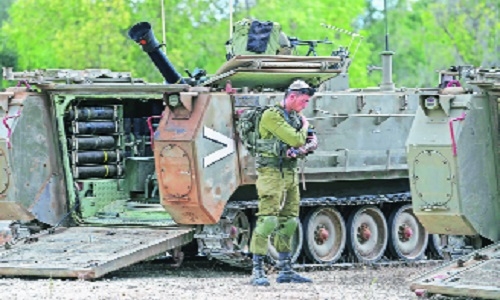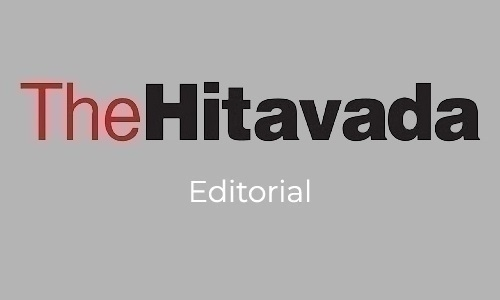The Israel-Hamas war: No matter who loses, Iran wins
| Date :11-Oct-2023 |

By Aaron Pilkington
Since the early 1980s, Iran has maintained support for anti-Israeli militant groups and operations. The Islamic Republic has publicly pledged millions of dollars of annual support to groups and provides advanced military training for thousands of Palestinian fighters at Revolutionary Guard and Hezbollah bases in Iran and Lebanon
THERE will be only one winner in the war that has broken out between Israel and the Palestinian militant group Hamas. And it is neither Israel nor Hamas.
In an operation coined “the Al-Aqsa Storm,” Hamas, whose formal name is the Islamic Resistance Movement, fired thousands of rockets into Israel on October 7, 2023. Hamas and Palestinian Islamic Jihad fighters infiltrated Israel by land, sea and air. Hundreds of Israelis have been killed, more than 2,000 injured, and many taken hostage.
In response, Israeli Prime Minister Benjamin Netanyahu declared war on Hamas and launched airstrikes in Gaza. In the first day of reprisals, close to 400 Palestinians were killed, according to the Palestinian Health Ministry.
In the weeks ahead, the Israeli military will surely retaliate and kill hundreds more Palestinian militants and civilians. As an analyst of Middle-East politics and security, I believe that thousands on both sides will suffer. But when the smoke settles, only one country’s interests will have been served: Iran’s.
Already, some analysts are suggesting that Tehran’s fingerprints can be seen on the surprise attack on Israel. At the very least, Iran’s leaders have reacted to the assault with encouragement and support.
The decisive factor shaping Iran’s foreign policy was the 1979 overthrow of the US-friendly, repressive Shah of Iran and the transfer of state power into the hands of a Shiite Muslim revolutionary regime.
That regime was defined by stark anti-American imperialism and anti-Israeli Zionism.
The revolution, its leaders claimed, was not just against the corrupt Iranian monarchy; it was intended to confront oppression and injustice everywhere, and especially those governments backed by the United States – chief among them, Israel.
For Iran’s leaders, Israel and the United States represented immorality, injustice and the greatest threat to Muslim society and Iranian security. The enduring hostility felt toward Israel is in no small part due to its close ties with the shah and Israel’s role in his sustained oppression of the Iranian people. Together with the US Central Intelligence Agency, Israel’s Intelligence service, the Mossad, helped organise the shah’s secret police and Intelligence service, the SAVAK.
This organisation relied on increasingly harsh tactics to put down dissenters during the shah’s last two decades in power, including mass imprisonment, torture, disappearances, forced exile and killing thousands of Iranians.
Support for Palestinian liberation was a central theme of Iran’s revolutionary message.
Since the early 1980s, Iran has maintained support for anti-Israeli militant groups and operations. The Islamic Republic has publicly pledged millions of dollars of annual support to groups and provides advanced military training for thousands of Palestinian fighters at Revolutionary Guard and Hezbollah bases in Iran and Lebanon.
Iran runs a sophisticated smuggling network to funnel weapons into Gaza, which has long been cut off from the outside world by an Israeli blockade.
Israeli-Palestinian conflicts and death tolls have escalated steadily since 2020.
Palestinians are outraged by increased evictions and destruction of property, and how Israel allows Israeli nationalists and settlers to violate a long-standing agreement preventing Jewish prayer at the Al-Aqsa Mosque - a site holy to both Muslims and Jews. In fact, a recent incursion by settlers into Al-Aqsa was specifically cited by Hamas as a justification for the October 7 attack. That is not to say that Iran ordered Hamas’ attack on Israel, nor that Iran controls Palestinian militants – they are not Iranian puppets. Nevertheless, Iran’s leaders welcomed the attacks, the timing of which serendipitously works in Iran’s favour and plays into the Islamic republic’s regional battle for influence.
The week before the Hamas attack, Saudi Crown Prince Mohammed bin Salman denied reports that Saudi Arabia had paused its recent efforts to normalise relations with Israel, which includes a formal declaration of Israel’s right to exist and increased diplomatic engagement. “Every day we get closer,” he said, an assessment praised and echoed by Netanyahu.
Israeli-Saudi normalisation would represent the pinnacle of achievement thus far in US diplomatic efforts, including the Abraham Accords, signed by Israel, the United Arab Emirates, Bahrain and Morocco in 2020.
The accords aimed to normalise and build peaceful relations between Israel and Arab countries across the Middle East and in Africa.
There are at least three possible outcomes to the war, and they all play in Iran’s favour.
First, Israel’s heavy-handed response may turn off Saudi Arabia and other Arab states to US-backed Israeli normalisation efforts. Second, if Israel deems it necessary to push further into Gaza to eradicate the threat, this could provoke another Palestinian uprising in East Jerusalem or the West Bank, leading to a more widespread Israeli response and greater instability.
Lastly, Israel could achieve its first two objectives with the minimal amount of force necessary, foregoing usual heavy-handed tactics and reducing chances of escalation. But this is unlikely. And even if this occurred, the underlying causes that led to this latest outbreak of violence, and the enabling role Iran plays in that process, have not been addressed. And when the next round of Israeli-Palestinian violence occurs – and it will – I believe Iran’s leaders will again congratulate themselves for a job well done.
(The Conversation)
(The writer is a PhD
candidate at Korbel School of International Studies, University of Denver)
n







